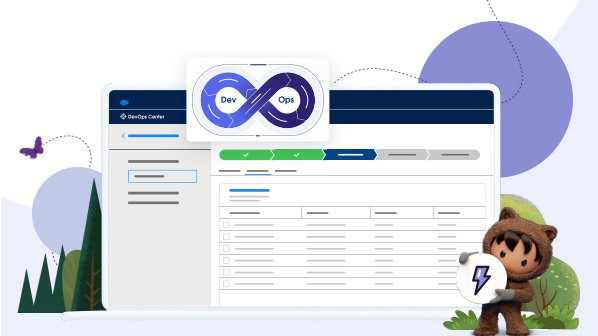What is NoOps?
There are numerous approaches to in-house development; we explore one that focuses squarely on efficiency


NoOps? What does that mean?
Well, you’ve heard of DevOps: development and operational teams working together to ensure you end up with software that does what’s needed, and staff who know how to work it effectively. The NoOps approach is more radical: instead of blurring the boundaries, the aim is to create software that doesn’t require an operational team at all by automating everything to the maximum extent possible.
So it’s a way of slashing headcount?
In theory, perhaps. Realistically, you’re still going to need humans to operate your applications – even Forrester, the research company that originally coined the term NoOps, admitted that some “ops” would likely remain. However, if your apps are designed according to NoOps principles, staff can spend less time on mundane tasks and more focusing on things that are directly beneficial to the business.
What about security? Is DevSecOps no longer the holy grail?
To get finicky, I’d argue that the holy grail was never DevSecOps, but rather SecDevOps. In other words, security should be right at the start of the development lifecycle. Some argue that security is merged into DevOps anyway, and the old arguments are moot. The important thing is that security is incorporated into the development process from the get go; a NoOps approach doesn’t change that.
Hold on, isn’t operations responsible for managing security updates and enforcing regulatory compliance?
Get the ITPro daily newsletter
Sign up today and you will receive a free copy of our Future Focus 2025 report - the leading guidance on AI, cybersecurity and other IT challenges as per 700+ senior executives
It’s true that the operations team often handles security and compliance tasks such as applying patches and controlling access, while a separate security team concentrates on the specific threat discovery and response stuff. If you simply yank ops out of the equation, it stands to reason that someone will have to take on those responsibilities – probably the already overworked security team.
So does NoOps really just mean shunting responsibilities around?
Far from it: remember, the idea is not simply to remove your ops team from an existing workflow, but to develop processes that lighten the load. Done right, this shouldn’t eat into your available manpower, but leave you with more. Another NoOps tactic is to move local applications into the cloud, as this means that a lot of maintenance tasks get taken over by your hosting provider.
To reiterate, all of this needs to be done right – and those are two words that crop up time and time again when talking about NoOps – but it can free up people to spend their time doing more worthwhile things.
So is DevOps on its way out?
Well, the idea of NoOps has been around for the best part of a decade, and DevOps is very much still alive and kicking. Indeed, DevOps has evolved and matured across the years and shows little sign of falling out of favour any time soon. That’s partly because switching to NoOps isn’t just a major cultural change but a huge technical one too. It’s not a quick process, either: ironically, you’ll need a capable ops team on hand to manage the transition, and for some time afterwards to ensure that the robots and humans are working together properly.
RELATED RESOURCE

The IT Pro Podcast: DevOps for fun and profit
How to successfully build a DevOps practice to supercharge your software development
As we’ve noted, therefore, pure NoOps is more a philosophical ideal than a realistic working practice. Even so, it’s a model that’s worth pursuing: It can help you improve efficiency even if you don’t go quite so far as to disband your entire operations team.
What comes after NoOps
For the majority of businesses, NoOps is only ever going to really mean “ABitLessOps”. But if things keep moving in the direction of ever greater automation, the question arises: what comes next?
One possibility that’s gaining traction is the idea of IntOps – short for intelligent ops, in which the day-to-day running of your software is taken care of by AI-trained machines. This might sound like a recipe for disaster, but given the advances in machine learning that we’ve already seen, it’s not so far fetched. This is, after all, technology that’s perfectly suited to repetitive tasks, and understanding failures by analysing error patterns – and there are entire categories of human error that machines won’t make.
Of course, people will still be required to supervise, and to provide the initial data from which the machines learn, meaning we’re some way from the point of making ourselves redundant. Still, it’s not too big a stretch to see IntOps at the heart of the software development and deployment cycle. Jump forward a few years and it could well be commonplace.
Davey is a three-decade veteran technology journalist specialising in cybersecurity and privacy matters and has been a Contributing Editor at PC Pro magazine since the first issue was published in 1994. He's also a Senior Contributor at Forbes, and co-founder of the Forbes Straight Talking Cyber video project that won the ‘Most Educational Content’ category at the 2021 European Cybersecurity Blogger Awards.
Davey has also picked up many other awards over the years, including the Security Serious ‘Cyber Writer of the Year’ title in 2020. As well as being the only three-time winner of the BT Security Journalist of the Year award (2006, 2008, 2010) Davey was also named BT Technology Journalist of the Year in 1996 for a forward-looking feature in PC Pro Magazine called ‘Threats to the Internet.’ In 2011 he was honoured with the Enigma Award for a lifetime contribution to IT security journalism which, thankfully, didn’t end his ongoing contributions - or his life for that matter.
You can follow Davey on Twitter @happygeek, or email him at davey@happygeek.com.
-
 Bigger salaries, more burnout: Is the CISO role in crisis?
Bigger salaries, more burnout: Is the CISO role in crisis?In-depth CISOs are more stressed than ever before – but why is this and what can be done?
By Kate O'Flaherty Published
-
 Cheap cyber crime kits can be bought on the dark web for less than $25
Cheap cyber crime kits can be bought on the dark web for less than $25News Research from NordVPN shows phishing kits are now widely available on the dark web and via messaging apps like Telegram, and are often selling for less than $25.
By Emma Woollacott Published
-
 A DevOps guide to the Salesforce platform
A DevOps guide to the Salesforce platformWhitepaper Learn how to ship code faster, safer, and with agility.
By ITPro Published
-
 What is platform engineering and will it see the end of DevSecOps?
What is platform engineering and will it see the end of DevSecOps?In-depth Platform engineering is not just the latest industry buzzword but could represent a profound change in how software is developed and governed
By Ross Kelly Published
-
 AI acceleration represents a ‘tectonic shift’ for DevSecOps
AI acceleration represents a ‘tectonic shift’ for DevSecOpsInterview David DeSanto, chief product officer at GitLab, believes there’s still much more to come for AI use cases in DevSecOps
By Ross Kelly Published
-
 Podcast transcript: How to scale a tech platform
Podcast transcript: How to scale a tech platformIT Pro Podcast Read the full transcript for this episode of the IT Pro Podcast
By IT Pro Published
-
 The IT Pro Podcast: How to scale your tech platform
The IT Pro Podcast: How to scale your tech platformIT Pro Podcast For startups, building a platform is only half the battle - after that, you’ve got to grow it
By IT Pro Published
-
 Podcast transcript: Stamping out scope creep
Podcast transcript: Stamping out scope creepIT Pro Podcast Read the full transcript for this episode of the IT Pro Podcast
By IT Pro Published
-
 The IT Pro Podcast: Stamping out scope creep
The IT Pro Podcast: Stamping out scope creepIT Pro Podcast Strategies for stopping the spread of this endemic development blight
By IT Pro Published
-
 The IT Pro Podcast: Everyone needs Kubernetes certs
The IT Pro Podcast: Everyone needs Kubernetes certsIT Pro Podcast Containerisation skills are now a business imperative
By IT Pro Published